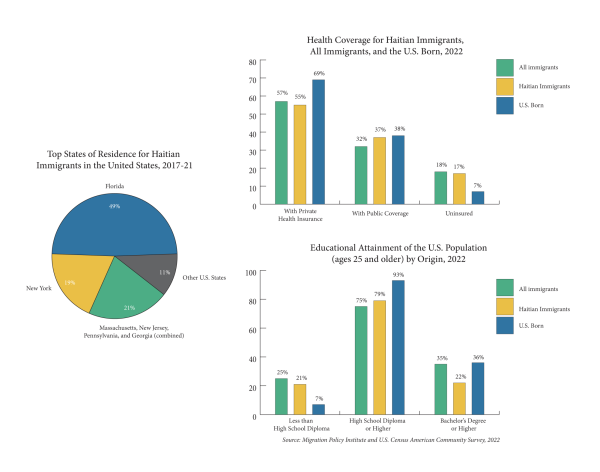Are Haitians in the U.S. “illegally?”
According to the Migration Policy Institute (MPI), there were approximately 731,000 Haitian immigrants residing in the U.S in 2022. About two-thirds are naturalized U.S. citizens. Approximately 99,00 are “unauthorized.”
In June 2024, the Department of Homeland Security announced that approximately 300,000 Haitians already in the United States will now be eligible for Temporary Protected Status (TPS), allowing them to remain in the U.S. and work.
Why have Hatiains settled in Springfield, OH?
According to numerous credible media reports, Haitians were drawn to Springfield for jobs and low-cost living. In 2015, in response to a shrinking population and crumbling economy, Springfield city leaders created a plan to attract business to revitalize the city.
By 2020, the city had created thousands of new jobs. Haitians who are in the U.S. legally have TPS, which includes a work permit.
What is TPS?
Congress established TPS as part of the Immigration Act of 1990 to provide humanitarian relief to citizens whose countries were suffering from natural disasters, protracted unrest or conflict.
According to the Department of Homeland Security, 16 countries are currently designated for TPS. Individuals who are from TPS-designated countries are eligible to apply for TPS status.
Applicants who “have been convicted of any felony or two or more misdemeanors committed in the United States,” or are inadmissible under “criminal and security-related grounds” are not eligible for TPS.
Do immigrants commit more crime?
According to the National Institute of Justice, undocumented immigrants are less likely to be arrested for a felony offense than both U.S. citizens and documented immigrants. This trend applies to a number of violent crimes, including homicide, assault, sexual assault and robbery.
The likelihood of an immigrant being incarcerated is 60 percent lower than of people born in the United States, according to the Stanford Institute for Economic Policy Research (SIEPR).
















































